This is part of the #STL2039 Action Plan storytelling series in partnership with Humans of St. Louis.
Areli Reyes: I’m a DACA student and really passionate about seeing change for Brown and Black bodies out here because there are so many injustices that we’re facing. I went to a college fair and met somebody from The Scholarship Foundation of St. Louis, but when I came by the office, that person wasn’t there. So, Felipe came out and that’s how we met.
Felipe: I’m the Immigrant Student Advisor at The Scholarship Foundation of St. Louis. I’m currently working with students across the St. Louis metro area, both at the high school and college level, to make higher education accessible and to support students through persistence to degree completion, especially when facing such strategic, systemic barriers. I came to St. Louis in 2014. Previously, in San Diego, I was a student advisor. I found this opportunity right about the time I needed a job in St. Louis. I know Areli because I was in the office the day she walked into the Foundation.
The immigrant student advisor at the time was out that day. At the time it was only a 10-hour a week position. So I talked with Areli instead. I’d been working with students since 2008, many of whom in California were undocumented, so when I walked into the room I was aware of the challenges students who are undocumented face when it comes to accessing higher education. In hindsight, the conversation that was sparked was really amazing. I asked her, “If we did something where more students who were undocumented could meet and talk, would you be interested in that?” She said, “Yeah, that would be amazing. I think that’s something that I’ve wanted.” We’ve worked together since then.
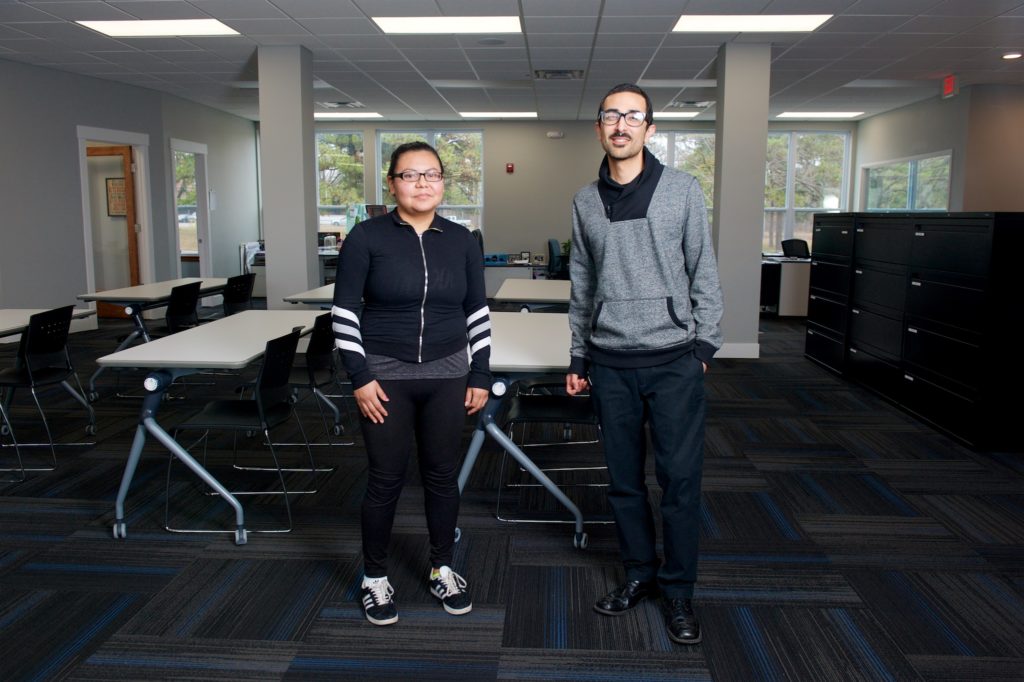
Areli Reyes and Felipe Martínez. (Photostory by Lindy Drew/Humans of St. Louis)
Areli had just been informed that she couldn’t collect the A+ Scholarship that she had worked so hard for while she was in high school. She had been out of high school for a year when she realized, “Hey, I don’t have a way to pay to go to school. They’re telling me I can’t use my A+ Scholarship.” She had no idea what was going on or where she should go and, I was honest, I didn’t know either. At that time, we were beginning to encounter more and more students who were coming in and saying they’d been accepted to such and such Missouri university, they had dorm rooms reserved, classes began in a few weeks, and they’d just been notified they’d have to pay their tuition again or be dropped from classes.
We were all meeting around the same time all this legislation was happening. SB224 was passed, and that revoked the ability for individuals who aren’t citizens or lawful permanent residents to collect on the A+ Scholarship because it was deemed a state benefit. Also, tuition was doubled, so all students who didn’t have citizenship or lawful permanent residence were required to pay international rates despite the fact that they lived the vast majority of their life in St. Louis. We started investigating together, like, “What is this? Why is this happening?”
We were all meeting around the same time all this legislation was happening. SB224 was passed, and that revoked the ability for individuals who aren’t citizens or lawful permanent residents to collect on the A+ Scholarship because it was deemed a state benefit.
I started working with the policy and advocacy manager at the Foundation, Areli became a policy intern, and we started doing this work together to learn as much as we could, act as much as we could, and really got out there to let folks know that we were doing this work and wanted them to be a part of it.
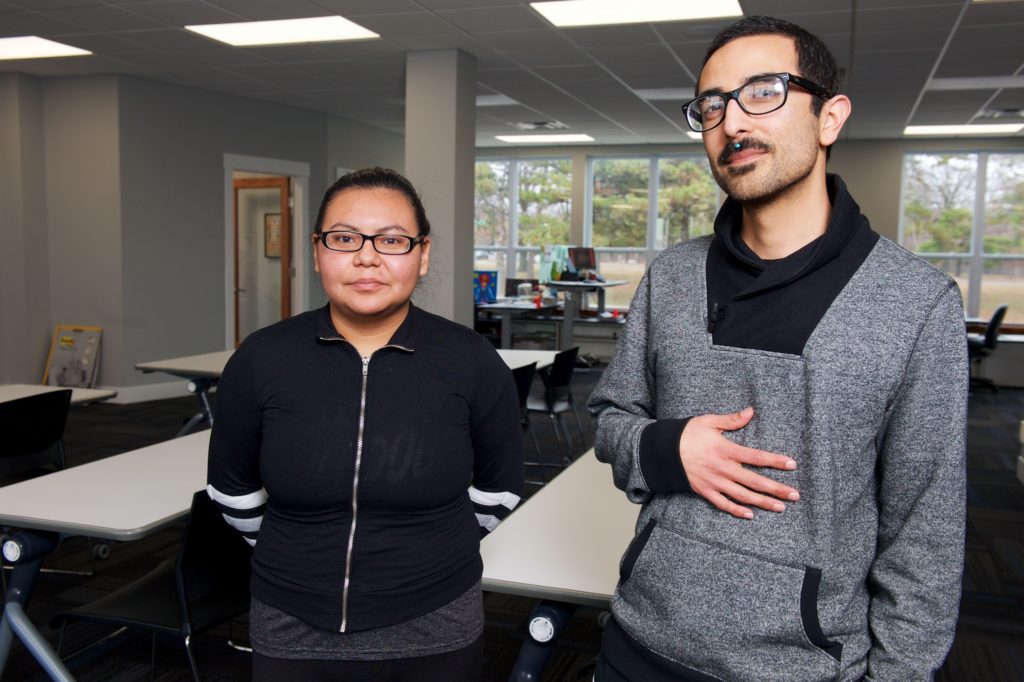
Areli: Felipe saw that we didn’t really know anything about the issue here in Missouri. So the first step was to investigate, do a lot of research, get all the information we needed to prepare ourselves to go to Jefferson City, and present the information to state legislators. The education policy internship prepared me. We had regular Saturday meetings that trained us how to communicate and talked to us about how to do an elevator pitch. I learned about other issues, as well, not just for undocumented students, but for first-generation and low-income students. We connected undocumented students with legal students because we were both facing the same issues – that we couldn’t afford college. We really tied everything together to show our representatives, “Be in our shoes. When did you go to college? What did you face? Now we’re facing triple times the barriers.” It was really powerful. It was a space where you felt really loved and safe to share anything you’ve been through. Everybody at The Scholarship Foundation uplifts each other, even though we have different struggles.
We connected undocumented students with legal students, because we were both facing the same issues – that we couldn’t afford college.
What have been the biggest barriers in doing the work that you do to move systems change forward?
Areli: The biggest barrier for some of us was how state leaders would avoid us. They knew we were coming that day, and they would act like we weren’t there and try to avoid us. We overcame that by setting up meetings now. Before, we used to just show up at Jefferson City for a whole day and try to meet up with several legislators. Now, they’re scheduling meetings with them. They’re the ones voting, so we have to inform them.
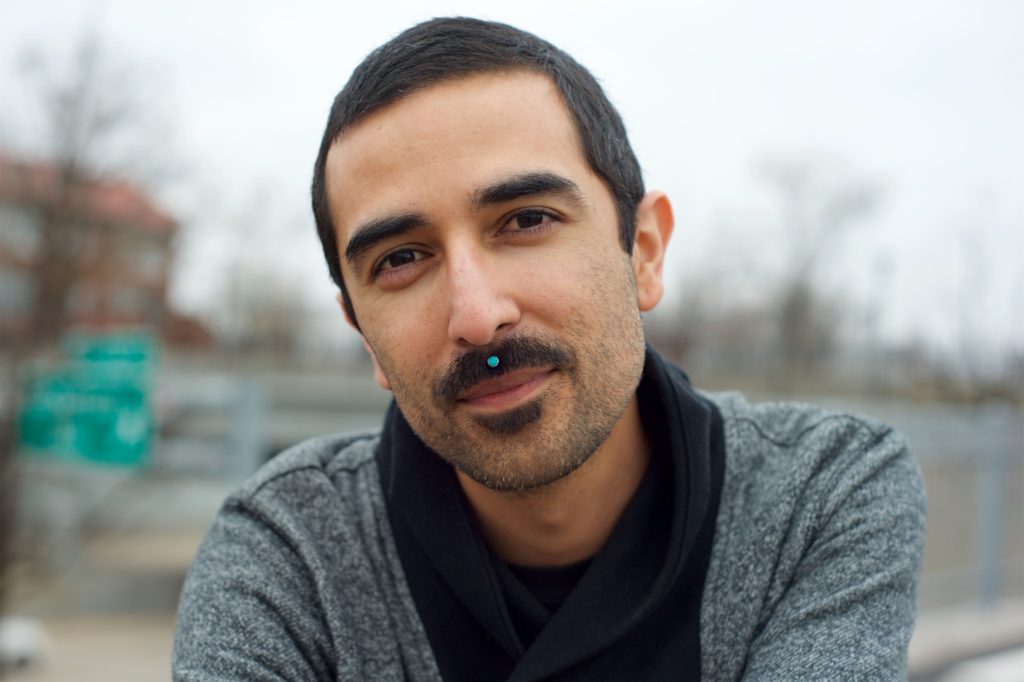
Felipe: I agree. I wasn’t a policy intern and I didn’t attend the meetings, but I know that the biggest challenge is that folks don’t hear us. And when they do hear us, they don’t always believe us. I think that’s because of where they come from, what their beliefs and biases are, and their own inability to empathize with folks enough to say, “Wow, everything you’re telling me…” Instead, it’s, “Are you sure it’s that hard? Have you tried this? Why don’t you just do that?” They’re oftentimes saying, “Isn’t there something that you’re responsible for, that you could do, that would improve the situation for you?” No, it’s not on an individual basis. It’s a systemic thing. It’s a policy thing. It’s the fact that we aren’t being heard, and we learned that early on.
So now the policy interns set up legislative meetings to have appointments and they know the individual will be at the table when they show up. But, another barrier is education about the issue, and more importantly, the people who are undocumented. Folks don’t know how big of an issue being undocumented is in the state. What we’ve heard from a lot of legislators is, “That’s not an issue in my district. That’s not a concern for my voters. What they’re concerned about is this, and that’s what I focus on. So I can’t help you out. I hear you’re in a tough position, but that’s not a priority for my constituents.”
It’s a systemic thing. It’s a policy thing. It’s the fact that we aren’t being heard, and we learned that early on.
I talk to administrators across the St. Louis metro area and try to find those key allies who do hear you, who do see what you’re saying and let them know there’s something they can do about that. Even if it’s something small, like knowing a person in a financial aid office who’s going to have a more honest conversation with you than the front desk staff who says, “Sorry, that person’s not in the office,” or whatever the excuse may be. We’ve become more strategic. And we’ve established contacts at a lot of universities that can now at least get the ball rolling on a conversation.
Tell me more about the work that is being done at The Scholarship Foundation to do policy and system changes aligned to the Ferguson Report’s calls to action, especially focusing on the Latinx community.
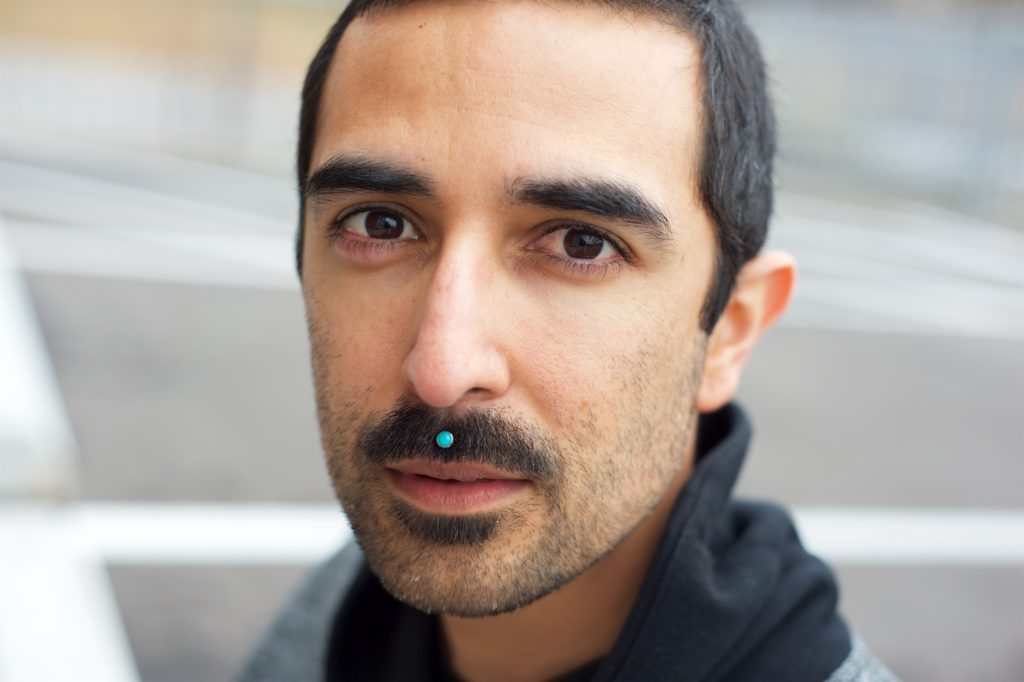
Felipe: When I came from San Diego, I didn’t know anything about St. Louis. I thought St. Louis is far from the southwest. Everything I read online said it’s a Black and White city. I expected to be one of the only Latinx people here. But that’s not the case at all. There’s a very strong Latinx presence in St. Louis, and often times I think people imagine it stands to the side because it doesn’t fit a Black and White binary. But it’s a very important voice. It’s out there, growing. On a variety of policy fronts, what the Foundation aims to do is to create space and platforms for powerful, especially young voices that need to be heard. They are impacted by these policies, and they have something to say about it. It’s important to highlight that undocumentedness is not solely a Latinx issue. I work with students from all over St. Louis, and they come from countries all over the world. It’s true that a large percentage of undocumented folks come from Mexico and Central America, but there’s a good percentage that comes from countries all over the world.
the Foundation’s based on the belief that anyone should be able to go to college if they have the desire to go to college, regardless of their bank account. No matter what, if you want to go to college, you should be able to get that higher education. We see students from all walks of life coming into our office and saying, “I want to go to college, but there are barriers.” What we do at the Foundation is build relationships to help them overcome those barriers as much as possible. It could be financial. It could be about information.
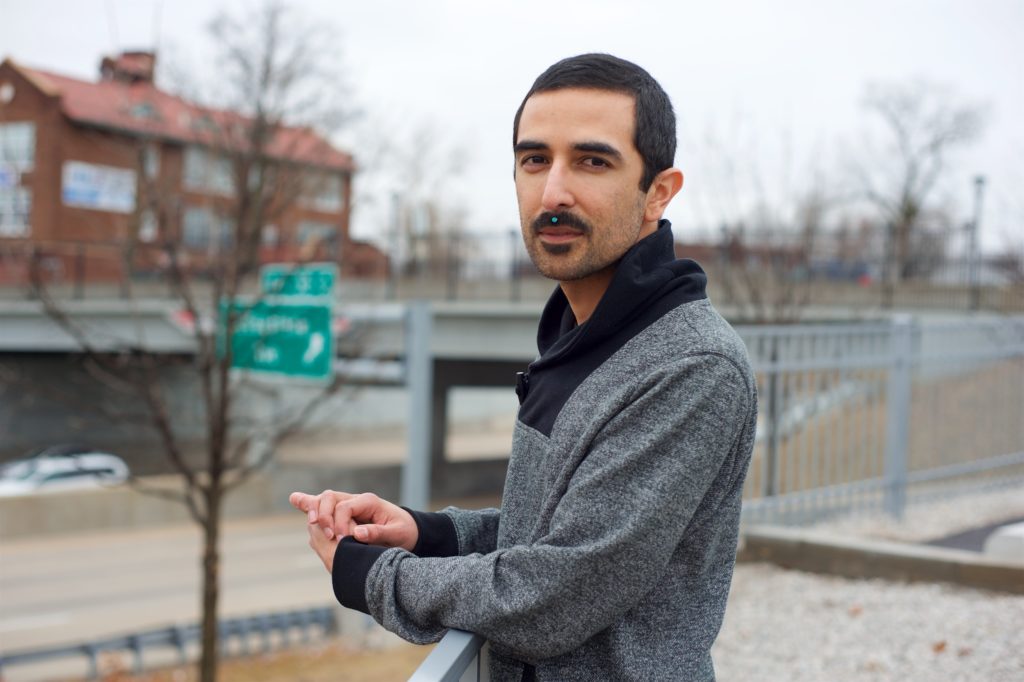
I grew up in a predominantly White suburb, and oftentimes I was the only Latinx student in my class. I wasn’t always addressed by teachers or encouraged or motivated by them. In St. Louis, I see a lot of young people facing the same kinds of things that I faced, and they say, “My teacher never told me about that opportunity. My advisor told me, ‘I don’t know.’” When counselors and advisors say, “I don’t know,” that can never be good. Students are coming to get information and advice on policies, wondering, “Is this what I’m facing, or am I just not doing something right?” And usually, it is the policy that the student is encountering issues with. Counselors shouldn’t feel that they have to have all of the answers. But they should be ready and willing to say, “I don’t know, but I can find out.”
Areli, when you came to The Scholarship Foundation, why did you want to go a step above to push the policies in certain directions, instead of just coming in to receive services?
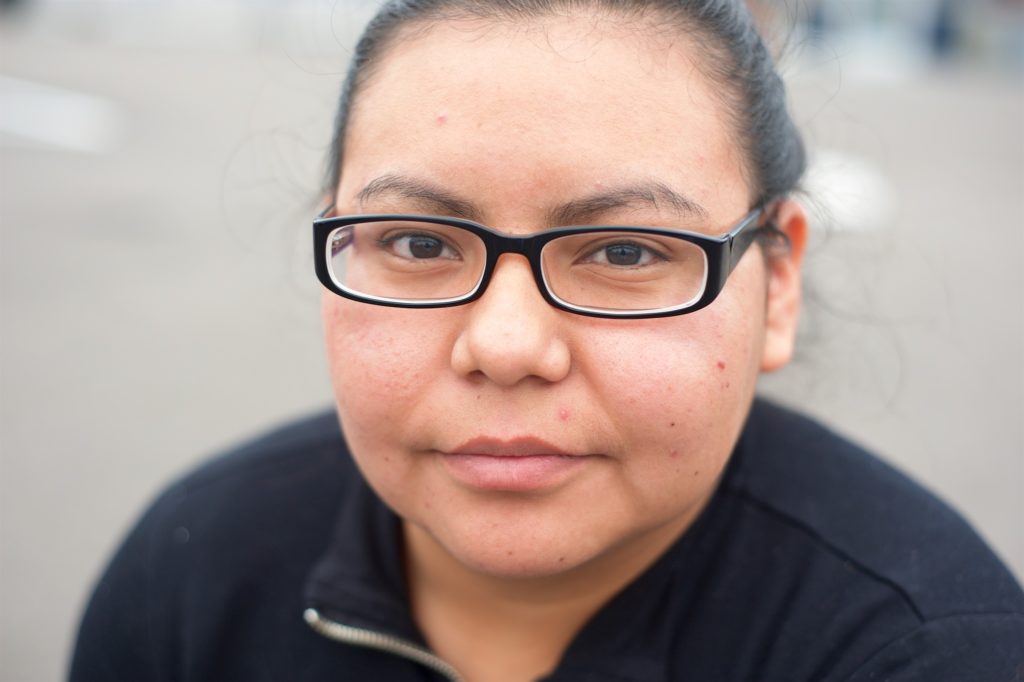
Areli: Because in high school, when I went to my counselor, she didn’t know anything. I was the first one to really talk to her about being a DACA student because at that time I did get DACA my junior year. My junior year, I applied to college just like anybody else, but I didn’t know that I wasn’t going to be able to get financial aid. Then senior year, everybody was getting their acceptance letters, like, “I was admitted!” and I didn’t get anything. So I went to my counselor and said, “What happened?” She said, “I’m not sure, but I think the schools need your social security number. That way they can process your application because they didn’t.” “You’re saying it took them a whole year and you’re just telling me now?” So, since I had it at that time, I gave her my social security number, and she said, “Okay, I’ll send it out to the colleges, and they should give you a call back.” But, by that time, it was already too late because I was graduating and the counselor never got back to me. That whole year, I didn’t know if I could go to college or not.
Yet, I felt like I wasn’t the only one that was going through this. I knew somebody needed to talk about it, because if they don’t, then it’s just going to happen to another kid.
I never received anything, and I didn’t have anybody that knew about continuing education because I’m the first one in my family to go to college. My parents didn’t receive a higher education in Mexico. Yet, I felt like I wasn’t the only one that was going through this. I knew somebody needed to talk about it, because if they don’t, then it’s just going to happen to another kid. It made me think about my sister as well. Even though she’s a U.S. citizen, I wondered, “Are they going to do this to her?” Counselors and advisors should make a change and not just focus on people that seem like the smartest, or the best and brightest, but also on people that want an opportunity. That’s really why I decided to take it up further.
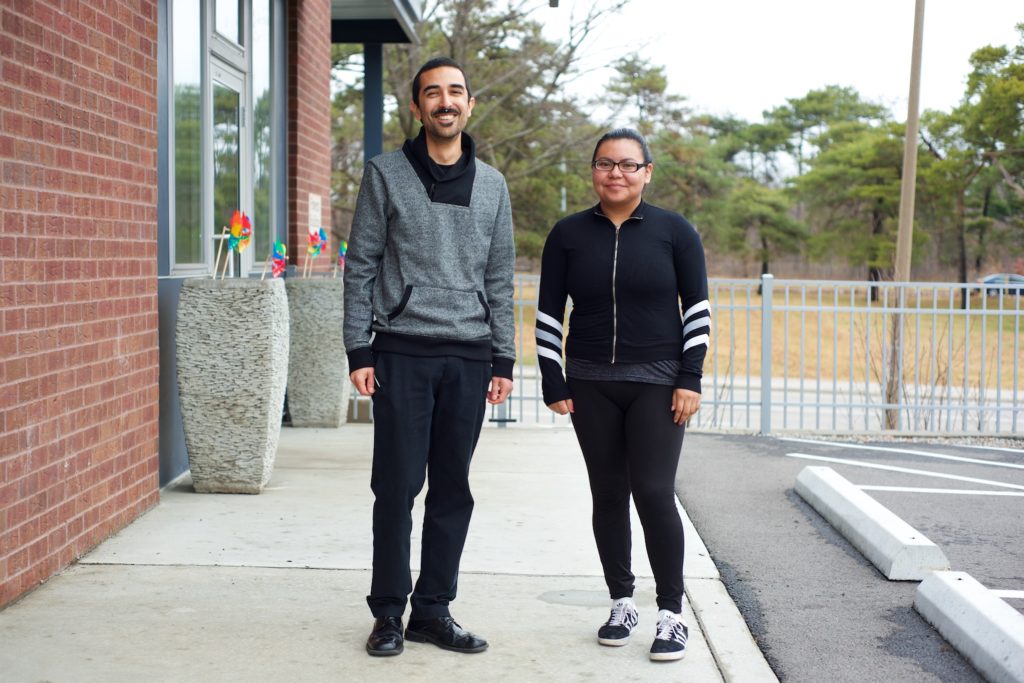
So, I came to the Foundation to get help with getting admitted and get financial help for college, and they also taught me everything I was supposed to learn about these things in high school. I didn’t know how to fill out a FASFA. I didn’t know that I could get my A+ Scholarship, because I was undocumented. Felipe connected with my counselor and we found out that my high school didn’t even stamp my transcript with the A+ Scholarship when I graduated. We had to go back there to tell them, “I got it and I need it because now I’m able to enroll in college.” Once I was able to get it, I took it to college, but then there was another issue:“Oh, you’re undocumented. You know you can’t get this.” We had to tell them, “Yes we can,” and that’s when Felipe and I got more information. By that time, SB224 wasn’t in place, so I was able to use the A+ Scholarship for a semester. But they took it away because then the new law passed. I was going through a lot at that time. I already took a year off from school, and when I finally got the chance to enroll, I was like, “No, fuck this shit.” Sorry.
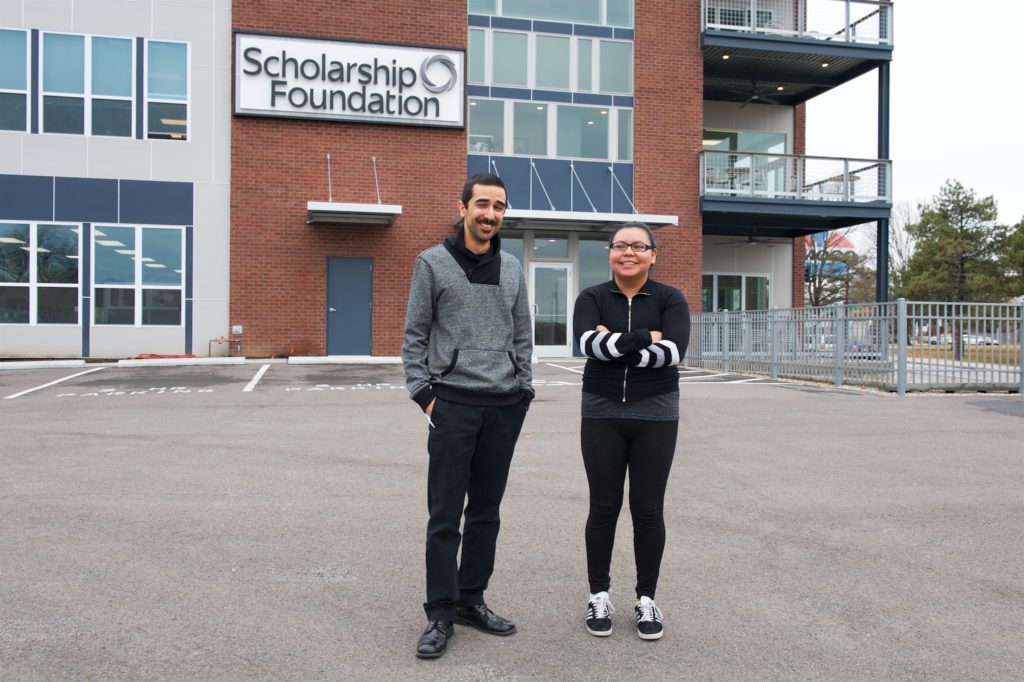
Felipe: You were like that. That’s how you were. You should be honest.
It’s always a Black and White issue, but what about other communities that are here?
Areli: I was just tired. I was working hard, and they didn’t see that. They’re just passing laws against us without really knowing anything about the students. I heard about the internship in 2015 when I started really advocating on behalf of undocumented students. There was a rally against St. Louis Community College because they were going to start charging us triple tuition. Missouri Immigrant and Refugee Advocates invited me to talk. I’ll always remember that day because that was the day I went public about my status. By that time, Felipe was helping me out. And that’s when I told myself, “I’m done.” I told my parents, “I’m going to do more for this issue because I’m not seeing anything done.” And like Felipe said, it’s always a Black and White issue, but what about other communities that are here?
Where have you made progress at The Scholarship Foundation and where is there more work that’s needed?
Areli: Locally, as far as the internship, students work with each other. Now we have the Active Advocacy Coalition, a coalition we formed by students for students. We’ve grown as far as knowing what issues we want to fight for, and the main ones are undocumented students fighting for tuition equity and fighting against student debt. So getting more money for Access Missouri instead of the money going towards Bright Flight, because Bright Flight basically goes to the students that already have money. So, for the students that we connected with, those were the main issues that they were facing. And as far as students getting connected, getting to know that The Scholarship Foundation helps out with loans. They help out with applying to different scholarships. Everybody that works for the Foundation that I’ve met truly cares for your well being and helps to get you a chance for an education no matter your status, no matter your color or anything.
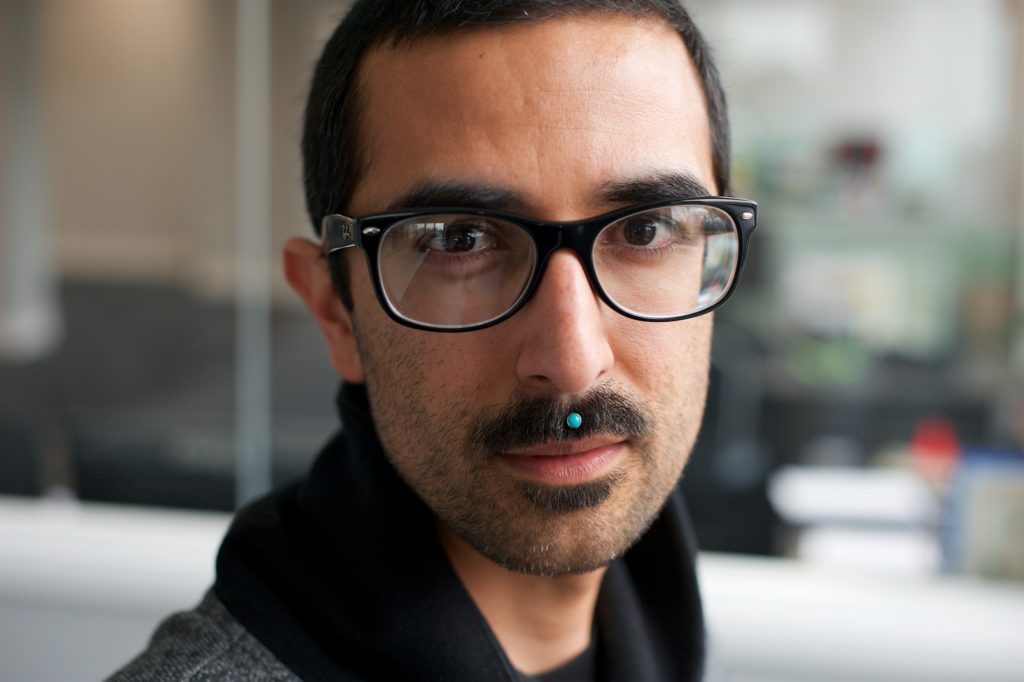
Felipe: One of the first things I learned at The Scholarship Foundation was that when I asked a question about a policy, they said, “Our goal is to get the student to a yes. It’s our work to do the work to get the student to a yes. If we can’t get to a yes, then we have to find an answer, a response, a face-to-face conversation about why we can’t get to a yes.” Most often we do get to that yes. What’s important is that we realize that racism isn’t always overt. It isn’t always about policy. Sometimes it’s just the front desk staff, the unwillingness to help out, the claim to lack of information, or ignorance: “I didn’t know that.”
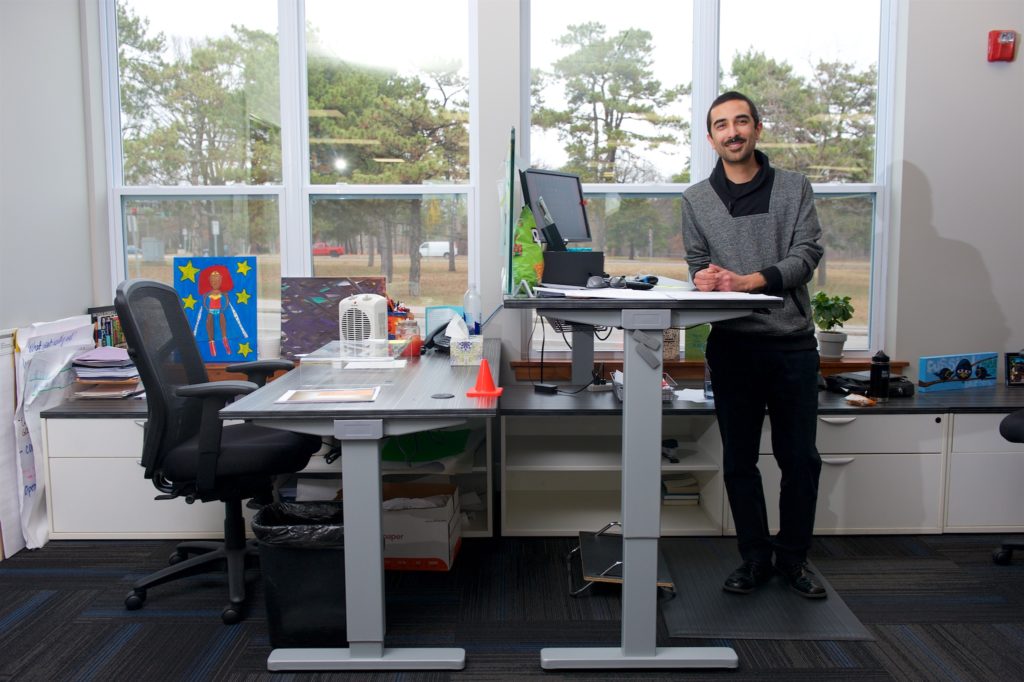
At the Foundation, there’s always a conversation. I work with so many students, and I need to learn as much as I can about that individual in order to help that individual get the information that they need, the resources that they need, to get to where they want to go. One of the things that I’m very proud to say is that no matter who the student is I’m meeting with, no matter what their color or socioeconomic status, I’m not here to tell them what to do or what they should do. I’m here to tell them what they could do and how they could do it. That’s a huge change in perspective.
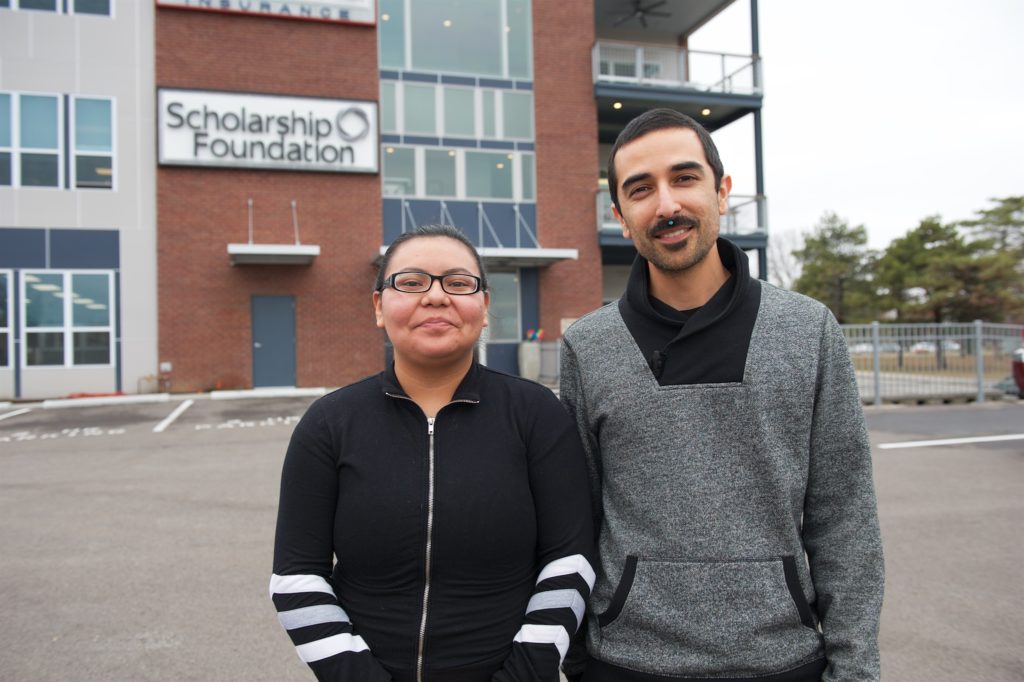
When I first came to The Scholarship Foundation, there was a citizenship requirement, and it was flexible in that if an individual was approved for DACA, they could also be eligible for the programs at the Foundation. Well, as soon as we found that the DACA program might be in jeopardy, we re-evaluated that policy, and we eliminated the citizenship requirement. We no longer ask, nor do we retain citizenship information about any of our students. It is not important to get to that yes. We thought, “Why do we need to collect this information? How are we going to use it? If we don’t need it and we’re not going to use is, we get rid of it.” That takes work off of us so that we can focus more on the student. This is a student-centered institution, which means we’ve got their best interest in mind. No matter what they decide based on the information that we share with them, everything is their decision. That’s really putting the power in the student’s hands.
We no longer ask, nor do we retain citizenship information about any of our students. It is not important to getting to that yes.
This is why I still live in St. Louis. I didn’t come here for this job, but I live in this city now because I couldn’t imagine myself leaving this work. We’re in this work together. We’re going to keep doing this work. It hasn’t been easy. We are always struggling, and the struggle continues. But we’re going to keep doing it. Where are the gaps? There are so many. But when we find them, it’s about how do we close them so we can get to a yes for that student.
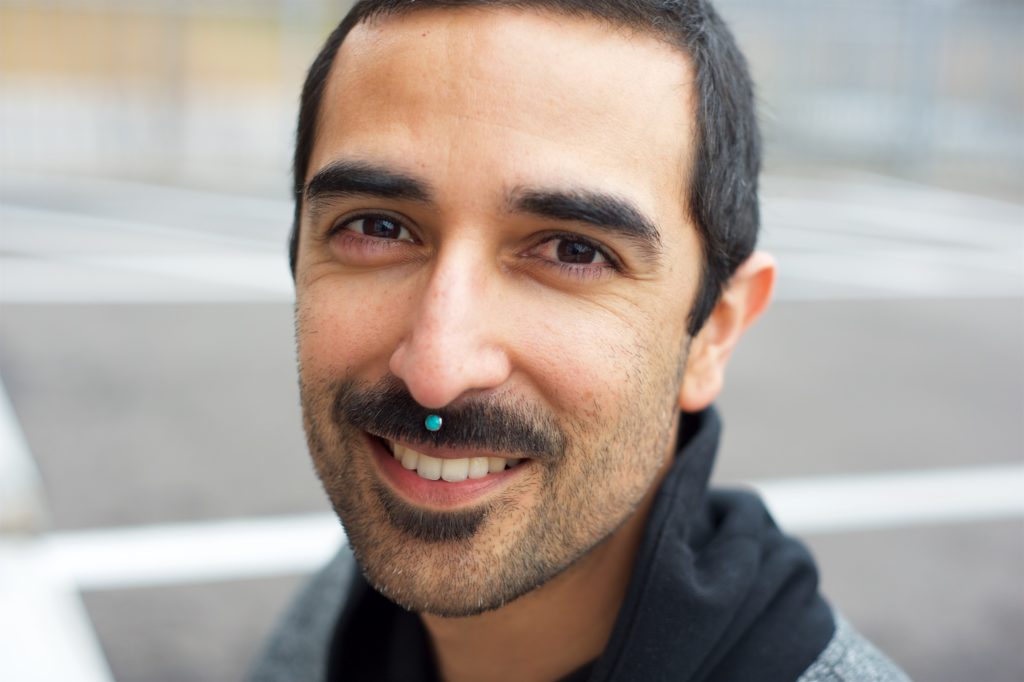
How do you celebrate your milestones along the way?
Felipe: By doing small things. I’m a student advisor, so the celebration might be shooting a text to one of my students and saying, “Hey, I hope you have a great day.” That is a celebration because you know what? We weren’t talking four years ago. Nobody was talking to each other. Where are the successes? I know individuals in so many organizations across this city now, and we’re all talking about the work that we do, about the successes we have, about the challenges we have. We’re asking, “This is what we’re doing. How do you do this?”
This is why I still live in St. Louis. I didn’t come here for this job, but I live in this city now because I couldn’t imagine myself leaving this work. We’re in this work together.
I recently just held a morning breakfast here for 20 St. Louis area high school counselors. We had a two-hour conversation about how to support students who are undocumented and seeking higher education after high school. It wasn’t, “Come in for a two-hour training and I’m going to tell you how you can do what you need to do.” It’s, “Let’s talk about this. What questions do you have? I don’t always have a clear cut answer, but I can share some thoughts with you.” It’s expanding the conversation and keeping it going at all times. When do we celebrate? We celebrate in any big or little way we can.
Knowing how you both became comfortable to contribute in the way that you do, how can other folks or institutions be thinking courageously about it?
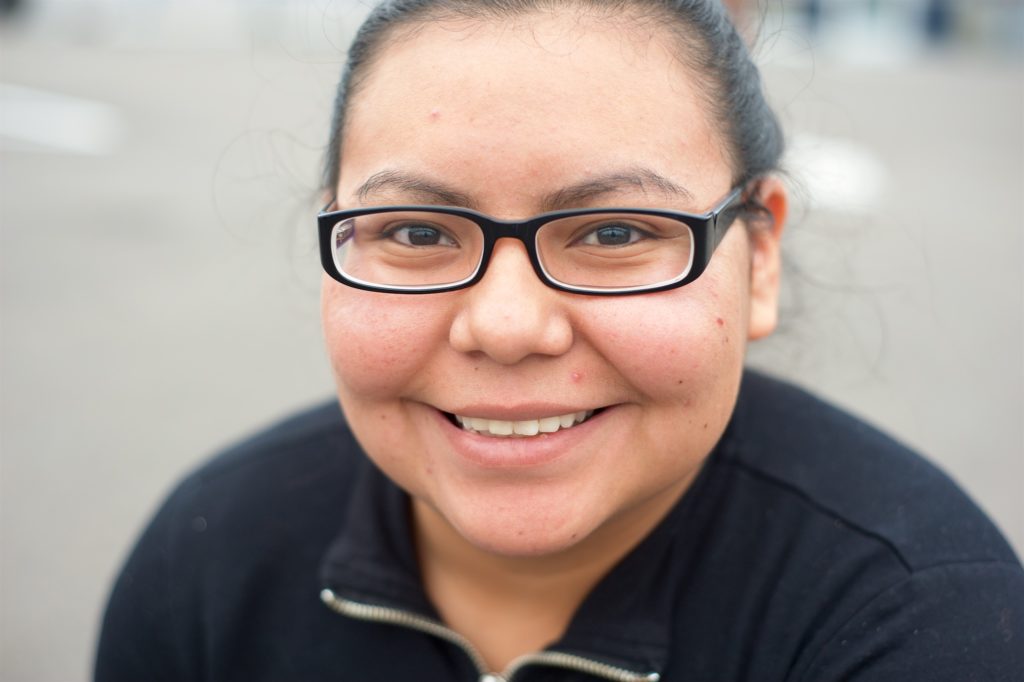
Areli: First, they have to be open. Don’t come here with a close mind, because we might talk about things you don’t want to hear. But once you hear about it, and maybe learn a little bit more about it, your mind can change. Be willing to have a conversation, like Felipe was saying. Without that, you really cannot do anything. And spread more awareness. Those are just some small things. Then, later on, you can work together talking about the work they’re doing and you’re doing, and it’s going to connect naturally. You’ll probably find out that, “Oh, we were facing the same issue here. Maybe we can connect that there, too.”
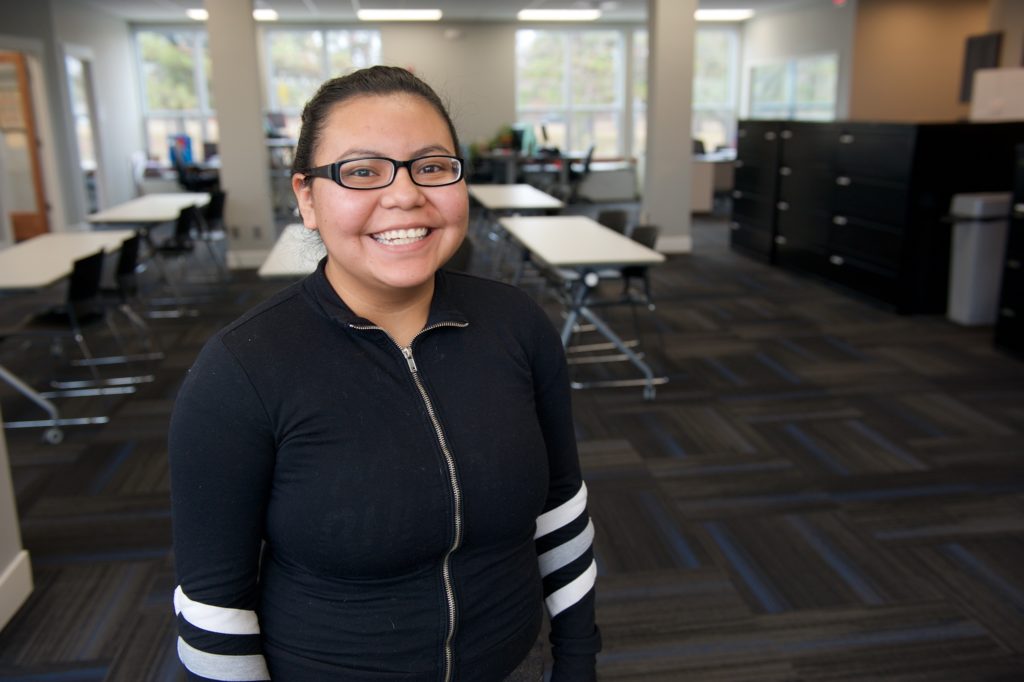
Once you’re aware of the issues, call your representatives. Make them hear about it, and inform them about, for instance, two bills that are affecting undocumented students. As a representative, they’ll question, “If I’m really for that issue, what can I do?” Then, really push them to make action happen. We’ve seen it before. We’ve seen Senator Jill Schupp and Maria Chappelle-Nadal speaking to these issues now that they know about undocumented students. We’ve seen them bring the issues up, bring my name up, when they’re having sessions, so now other senators know. Same thing with Governor Jay Nixon, who brought up my story about me not getting the A+ Scholarship. That was like, “Whoa! We have the governor bringing the issue up.” That’s making action. He actually vetoed SB224 that would prohibit A+ from going to anyone who did not have citizenship or lawful permanent residence. But it got overwritten. Still, that’s something, right?
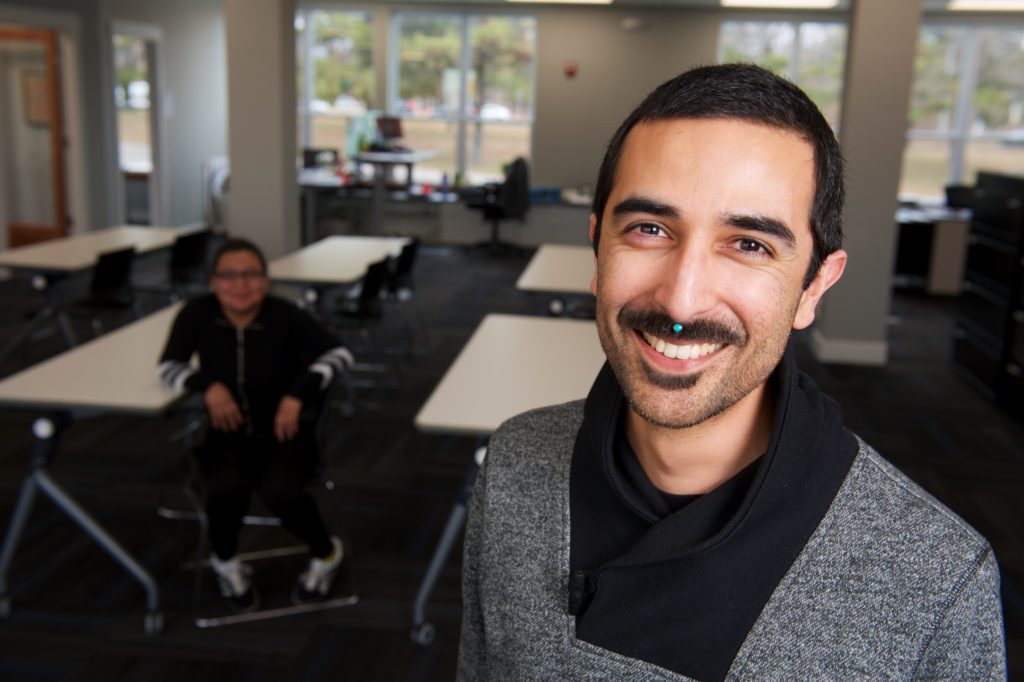
Felipe: My number one go to, and I use this every single day, is to ask a question about a policy. Pick up the phone and ask a yes or no question. “Can I do this? ” If they say no, “Why?” That person oftentimes on the other side of the phone, they don’t know why. I called a community college and I asked, “Why do you ask for this on your application?” They said, “Where?” I showed them. They said, “I don’t know.” When they investigated more, they found out that they didn’t need to have that on there. So, ask a question to someone else, or ask a question to yourself. “Why do we do what we’re doing?” Often times, folks don’t want to ask those questions. They want to say, “This is the way we do things.” If this foundation had said, “Nope, these are the questions we ask on our application,” that’s not challenging ourselves at all. Ask why a policy exists, because more often than not you’ll find most folks don’t have an answer. If there’s no answer, that’s a great place to step in and say, “How do we make change?”
Missouri is only one of 15 states in this country that either prohibits, or prohibits through cost, higher education for folks who are undocumented. There’s a special scholarship designed for these 15 states because they’re called “locked out states,” and if you are undocumented and you want to go to college, it is going to be almost impossible. Legislators in this state have increased the price of tuition, and they’ve dropped the floor out to say, “You can’t get any scholarships to help you pay that double tuition. You’ve got to pay it all out of pocket.” We’re looking at $36,000 a year at one of our public institutions for a student who’s gone to elementary, middle school, and high school, who’s volunteered, who’s worked, who’s supported their family, and who’s been supportive to their friends and to their community.
Areli: Pretty much a Missourian.
Felipe: A Missourian, right? Think about the word “community college.” Community colleges were developed to be the stepping stone to the university for the community. There’s a district rate for your community. Yet, a member who has lived in your community and served your community their whole life cannot get the community price at your institution. In the last six to eight months, we’ve seen a lot of colleges distributing supposed letters of support. They say “we support you.” But I can’t seriously take a letter that says “we support you” while the authors also adhere to prohibitive policies. What’s really happening is they’re saying, “We support you,” but also, “Policy says I can and should charge you double, so I’m going to do that.” We can’t take that seriously, you know? So, yeah, St. Louisans. Missourians, right?
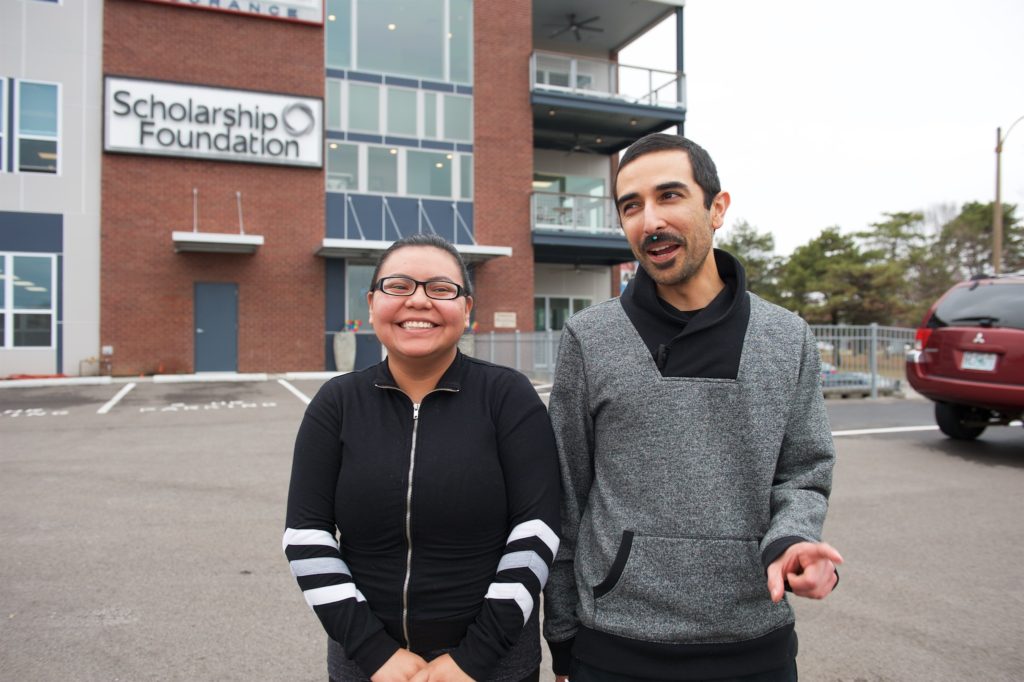
Areli Reyes and Felipe Martínez. (Photostory by Lindy Drew/Humans of St. Louis)
When you do graduate from college, Areli, what does that look like?
Felipe: I see greatness.
Areli: We’ve already seen so many people leave Missouri. I’m only staying because of personal reasons and because I’ve been here since the 8th grade. So, this is the only place I’ve known. But a lot of other students are like, “Forget this. I’m better off in Illinois, or Kansas, or somewhere else,” because they’re getting better opportunities.
Maybe we have to do follow up interviews in 2039. Get you two back together.
Felipe: We’ll probably still know each other. We’ll be texting and calling.

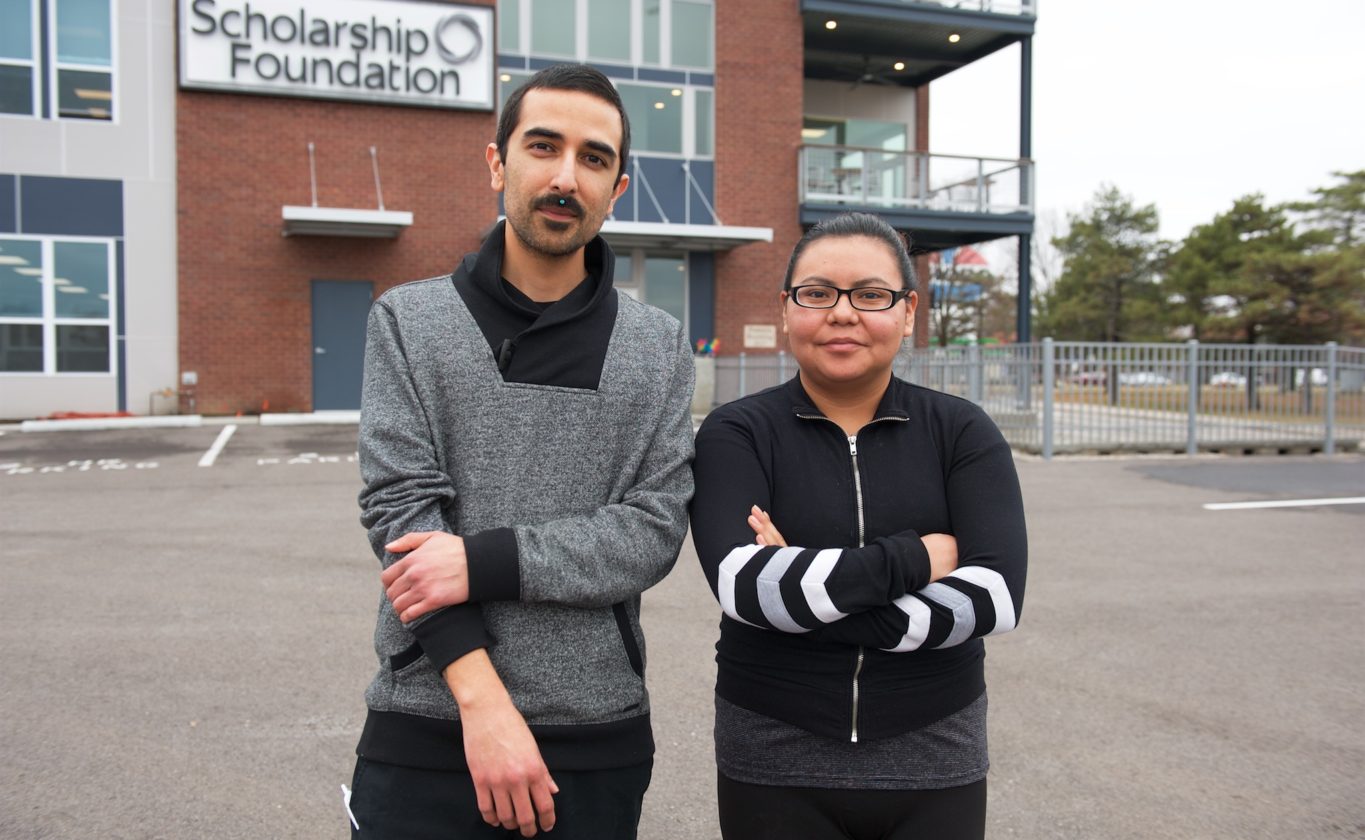
#FwdThruFerguson